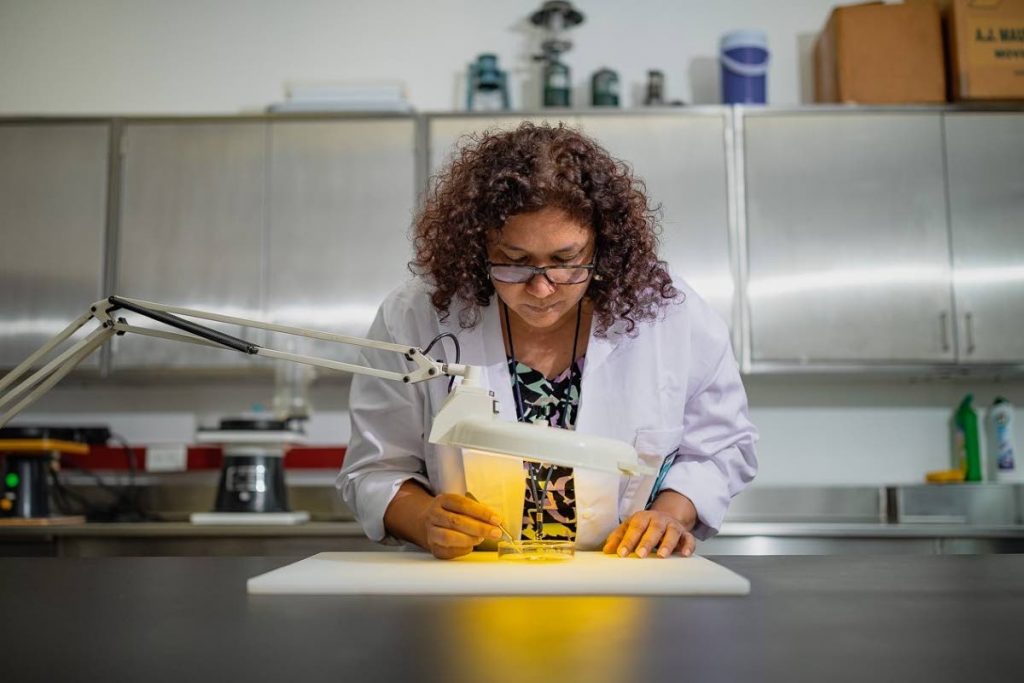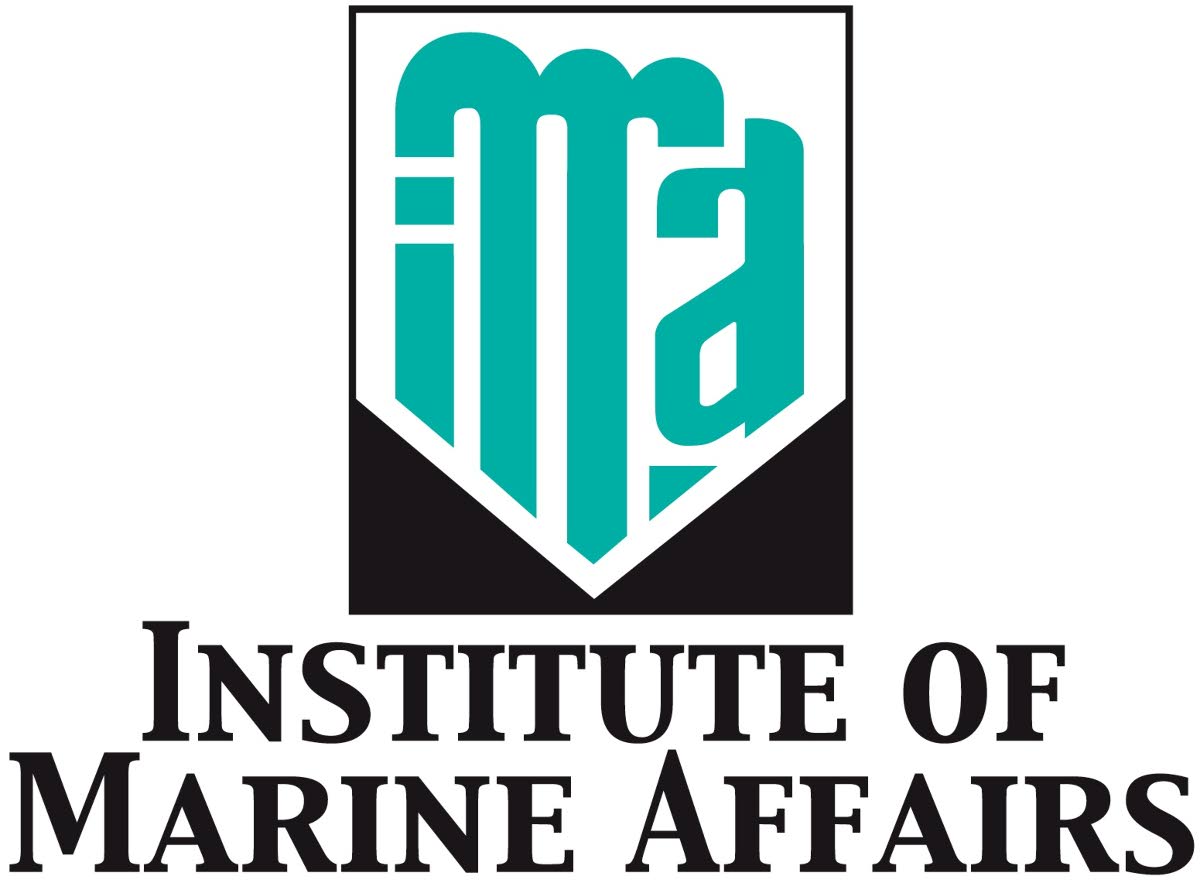Salute to IMA's women of science

By Lorraine Barrow
Intense hurricanes, unprecedented floods, uncontrollable wildfires, hotter than usual temperatures, droughts and melting ice caps all briefly summarise the adverse effects of climate change, which has been experienced within the last decade. Last year 2020, saw the emergence and onslaught of the covid19 pandemic, which continues to wreak havoc and upend our daily lives.
If the world is to address these combined challenges, brought on by climate change and human pressures exerted on our marine and coastal environments, there needs to be a reliance on science for solutions.
The world needs science and good science demands all our human resources, men and women alike. In order to take decisive and urgent action in the best interest of humanity, the global community cannot rely on half of the scientific potential that is available to them at present, the global community needs full potential.
As we are still in the early phase of a new decade, the United Nations (UN) proclaimed Decade of Ocean Science for Sustainable Development (2021-2030) is sounding a clarion call to the global community to embrace and promote gender equality and scientific research as imperatives to achieve the Sustainable Development Goals by 2030.
In an interview with the IMA, Ms Alison Clausen, of the Paris Office of the United Nations Educational Scientific Cultural Organisation (UNESCO), noted that the UN was creating a framework to galvanise global support for championing the health of our oceans. Ms Clausen states that science has, for decades, documented the demise of our oceans but now the global scientific community must use science to provide solutions – and that scientific community includes women.
On February 11, the Institute of Marine Affairs (IMA) joins the United Nations and the rest of the international community in commemorating International Day of Women and Girls in Science. This day allows us to acknowledge the important role women play in science and endorse the reality that more women and girls are required to engage in Science, Technology, Engineering and Mathematics (STEM) careers.
Since its inception 42 years ago, the IMA has a long history of women making considerable contributions to local marine scientific research and even shaping the direction of the Institute, from its first female Director, Ms Hazel McShine in the early 1990s to our current acting Director, Dr Rahanna Juman. The IMA has been made stronger by the commitment, temerity and significant scientific contributions made by women in its 42 years of existence.
The IMA recognises the ongoing marine research and scientific contributions of eight female scientists, who have made significant contributions to our national scientific heritage and advanced policy formulation and conservation. Empowered and focused-driven, these women have made strides in a traditionally male-dominated industry. We invite you to join us in saluting the following female scientists at the IMA.
1. Wetlands Conservation – Mangrove forests often conjure images of murky, brackish water, which can be perceived as uninviting and unappealing in the eyes of the general public. However, a female scientist has been able to reverse that perception, teaching us that mangroves provide many ecosystem services including mitigation, and adaptation to the impacts of climate change.
Acting director of the IMA and experienced wetlands ecologist, Dr Rahanna Juman, continues to advance research and our knowledge on the importance of mangrove forests and wetlands in general and the need for the conservation of this precious wetland resource. Having co-authored a book titled, Mangrove Forests of Trinidad and Tobago, Dr Juman continues to influence or shape policy formulation on the subject, including the National Wetlands Policy of TT.
2. Fish and Age Growth Studies essential for Fisheries Management – A google search of Rosemarie Kishore, senior research officer in the Fisheries and Aquaculture Research Programme, produces results on numerous titles of scientific publications she has written ranging from marine invasive species, women and fisheries, fisheries ecology to fisheries management including impacts on the fishing industry by industrial development. In fact, one such result reveals a comprehensive report she authored on the crucial role women play in the local fishery and played a key role in the development of the first female fishing organisation in Trinidad – Women in Fishing Association (WIFA). Ms. Kishore heads the Fish Age and Growth Laboratory which provides information crucial for stock assessment and fisheries management and has researched several key species such as the carite, cavalli, the wahoo and the lane snapper. Her research data does well to address the problems of exploited fish stocks and contributes to the development of policies and legislation. With years of experience and knowledge, she continues to demonstrate commitment to quality in scientific research performing outreach to school children and stakeholders and by authoring scientific publications which contribute to the arena of local and international fisheries and management.
3. Ocean Health – The United Nations Decade of Ocean Science for Sustainable Development 2021-2030 raises awareness on the importance of oceans – keeping climates in balance, feeding a growing population, supporting international trade and shipping, protecting marine habitats – while sounding the clarion call to action to reverse the declining health of oceans. Dr Cassandra Nanlal, research officer physical oceanography, leads the Department of Oceanography and Coastal Processes at the IMA in conducting research and providing up-to-date information and data on the ocean’s condition. Her primary research includes relative sea level change, vertical deformation and coastal erosion with the aim of understanding causes, impacts and sustainable mitigation measures. This information is not only pertinent to integrated coastal zone management at the local and regional levels but also adds to a growing international body of literature on the importance of healthy oceans and seas. The information also helps position TT to collaborate with our stakeholders in regional and international meetings and to shape policy that address disaster risk reduction.
4. Heavy Metals Pollution – Heavy metals are commonly used in the industrial and manufacturing sectors, and may also be present in agricultural and urban runoff, sewage and domestic waste. Trace metals are persistent in the environment and can bioaccumulate in aquatic organisms, posing a threat to consumers, including man. Heavy metals researcher Ms Wendy Nelson has authored many peer-reviewed articles and publications, and logged hours of laboratory research. She continues to carry out research throughout TT in the hopes of raising awareness on the adverse effects of these metals on our health and environment. Her research has contributed considerably to the development of environmental policies and legislation for TT.
5. Coral Reef Research – Coral reefs protect coastlines from storms and erosion, provide jobs for local communities, and offer opportunities for recreation. They are also are a source of food and new medicines. Over half a billion people depend on reefs for food, income, and protection. Dr Anjani Ganase, coral reef ecologist, has logged hundreds of hours underwater studying the health of our coral reefs – bleaching events and opportunistic diseases that adversely impact corals. She continues to author scientific findings, which are used to advise on conservation policies and strategies, and pens educational articles on the importance of healthy coral reefs to our sustainable future.
6. Fisheries Ecology – Fisheries is an important Blue Economy Sector contributing significantly to livelihoods in coastal communities. Dr Farahnaz Solomon, a Fisheries Biologist at the IMA has been involved in several projects focusing on the sustainable management of these resources. She has been involved in fish age and growth studies of commercial species such as carite and cavalli, coral reef fish surveys in Tobago, and an ecosystem-based approach (EBM) to the management of coastal wetlands. In an upcoming project, she is hoping to help control populations of the invasive Lionfish in Tobago, by designing a fishpot to specifically target this species. She also intends to use DNA metabarcoding of the stomach contents to determine possible impacts on the invasion on reef fish assemblages in Tobago.
7. Marine Reference Collection – Ms Alana Jute manages IMA’s Reference Collection, which is unique to TT. The Marine Reference Collection is of national, regional and international importance owing to its distinctive contents and relationship to world-wide taxonomic holdings. The collection provides a physical snapshot of a species or community at a particular point in time and space, and it is this record that makes the collection so valuable because DNA cannot be extracted from a photograph but a preserved physical specimen can provide a wealth of information. This collection is an integral resource to regional and international academic research and bridges the gap in the preservation of marine species indigenous to TT’s biodiversity for our environmental heritage.
8. Marine Policy – Ocean governance is imperative to manage the relationship between people and the coastal and marine environments. Marine governance researcher, Ms Ruqayyah Thompson, leads discussions with external stakeholders and makes recommendations, drafts policies and plans to ensure the sustainable use and management of our country’s marine biodiversity and coastal and marine resources.
Although the IMA has been able to bridge the gap as it relates to gender equality, women are still not accepted into mainstream STEM jobs and professions in some parts of the country and the world.
According to a UNESCO report published in 2015, women today account for only 38 per cent of the world’s researchers in ocean science. In TT, we are no stranger to this reality. In fact, in its 70 years of existence, The University of West Indies (UWI) St Augustine Campus appointed its first female professor of science, Dr. Judith Gobin, in June 2020 and its first female campus registrar Dr Dawn De Four-Gill in June 2019.
The International Day of Women and Girls in Science helps to raise awareness to gender parity in the hope of bridging the gap as it relates to gender equality and enabling more women and young girls to pursue STEM careers. Recognised by the United Nations Sustainable Development Goal No 5 “achieve gender equality and empower all women and girls,” the talents, knowledge and expertise of both women and men bring different perspectives, ideas and insights that would help to reverse the failing health and decline of our oceans. Let’s support the movement
#womeninstem.



Comments
"Salute to IMA’s women of science"